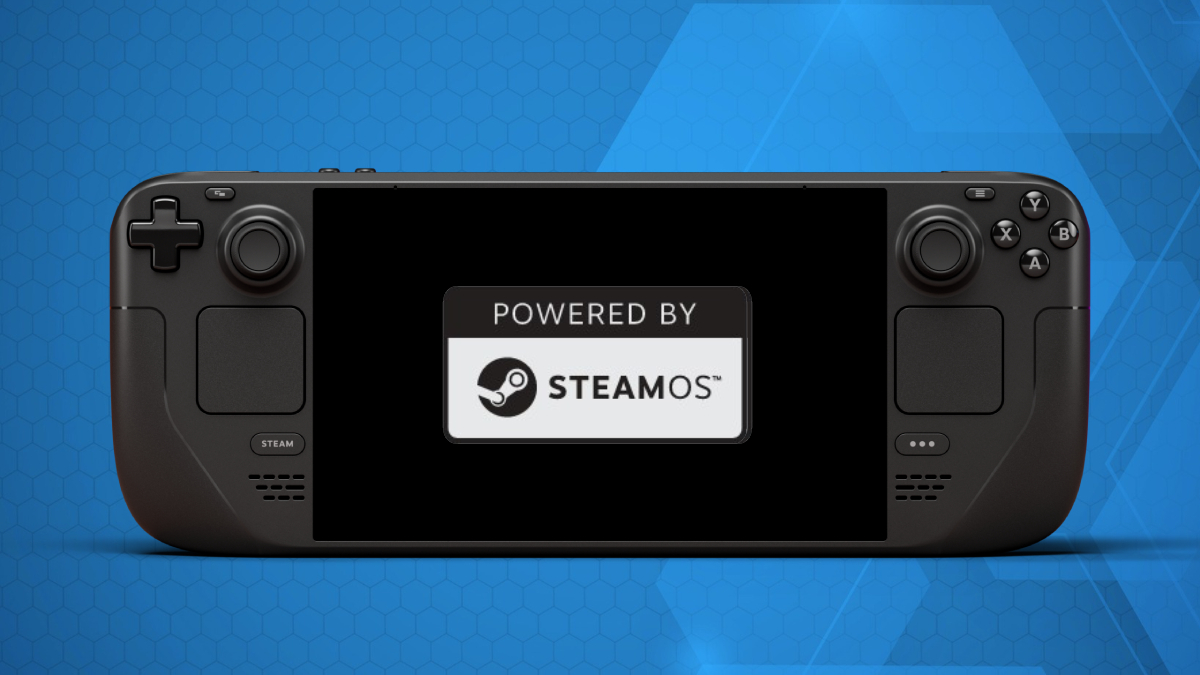Even gamers nexus’ Steve today said that they’re about to start doing Linux games performance testing soon. It’s happening, y’all, the year of the Linux desktop is upon us. ᕕ(ᐛ)ᕗ
Edit: just wanted to clarify that Steve from GN didn’t precisely say they’re starting to test soon, he said they will start WHEN the steam OS releases and is adopted. Sorry about that.
To anyone reading this thinking “once SteamOS comes out, I’ll switch”, you should know:
Gaming on Linux is already here. Pick a distro and game. You can take advantage of Proton right now. You don’t need to wait for one specific distro.
I’ve personally been gaming on Linux exclusively for about 3 years. Windows games, not Linux games.
Edit: based on other commenters’ suggestions, I’ll give you some.
I have gamed for those three years on PopOS. It is a distro based on Debian, ultimately, which means it’s also related to Ubuntu and Mint. Realistically, you can pick any of those 4 and you should have a nice experience.
Arch is popular with the übergeeks, and I do use it on my laptop, BTW, but you shouldn’t use it as a first distro.
The concept of “distro” doesn’t really exist for Windows, because you pretty much get one monolithic product. But basically, it is a specific mix of software that works together and relies on the Linux kernel. Imagine it as a “version” of Windows with specific goals, some of which are overlapping (e.g. Mint and Ubuntu tend to cater to the same audience).
If you get far enough into it, the freedom that Linux allows means that you can turn any distro into any other distro.
It’s actually surprising how easy it is to use.
My wife was playing Baldur’s Gate 3 on her windows laptop (GOG version, DRM free) and I just wanted to see if I can run it on my Linux laptop.
Just copied the game folder from her laptop to my external SSD, plugged it into my laptop, ran through proton. Everything works without any issues. Simple as that.
I was pleasantly surprised. We could even join via LAN and had some co-op fun. After trying it out I think I’m buying the game.
I haven’t used Windows for more than a decade, and I am genuinely surprised reading your post that the game works in this manner even if with proton/wine layer.
I can’t help but think that this is an exception, and would attribute this behaviour to how the game is made. I wonder what other software function this way.
In my experience pretty much everything works this easily. Steam games are a click away, Linux support or not. For things outside of steam you can either copy the install folder from a Windows install or just run the installer through Proton.
I don’t even check ProtonDB anymore before buying a game. It just works the vast majority of the time, even without additional configuration.
Exactly this. Many people have a lot of apprehension until they actually try it.
ran through proton
See, this is after where most gaming folks hop off.
In all fairness, if you just run Lutris (pre-installed on Bazzite), log into GOG from there and install and run the game through their wizard, it also “just works”.
That might be easier for most.Probably true, it depends. There are Steam folks and then there are GOG folks.
I prefer GOG tbh because it’s DRM free, but for some games I still need Steam, unfortunately.
What you just said is so much more difficult than running games through proton isn’t it??
For me, yes. But this is all using hands-holding Windows-like UIs, please realise that the recent-ish influx of Linux gamers understand this much, much better than terminals.
Although, I’m not sure how to install Proton as a CLI package on Mint, for instance.
aptdoesn’t list it, but Steam and Lutris do install it internally…You just go to steam settings > compat > enable for all games and then it just works for all games on steam
I’m not sure if you’re reading my messages but I’m saying I’m not sure how to do Proton outside of Lutris and Steam. And that CLI outside of a launcher sounds more convenient, but gave Lutris instructions for someone running a game not from Steam.
okay, that is different, sorry.
for that
step 1. install wine-tkg
step 2. right click a .exe > properties, set wine-tkg as the default
left click on .exe’s to open
done
Tbh the vast majority of people who say “ill switch to (insert Linux distro here) when (insert accomplishment here)” will most likley never switch
Fair enough. I tend to agree, but I like to give people the benefit of the doubt, because, you know, FOSS and freedom.
I’ll switch when 10 finally dies, they state Oct 2025 but if even less people go to 11 they won’t really have a choice but to keep 10 up and running. Make 10 the last Windows OS ever. Never go to 11.
But… Why not now? I can’t think of a single reason.
Time & effort. Everything that you do means something else doesn’t get done. Whether that be gaming with friends or an item off your project/chore list.
We know that gaming centric distros are great for getting up & running, but it’s still a time sink, and will require effort. Not everybody has a backup drive with their games and will have to re-download everything too. There’s also a risk their favorite game isn’t compatible with Linux
Windows 10 also works just fine. I still have it on 2 of my 4 computers (2/5 if you count my Deck), and haven’t switched those over yet because I’m being lazy on one and the other is a perfect candidate for the SteamOS UX experience since it’s a HTPC. However, I have done some looking around at other HTPC experiences and just haven’t pulled the trigger. Which will be awesome, since Windows did away with their HTPC UX years ago.
Personally, my last holdout on my desktop is VR, and I’d rather not dual boot.
My laptop has been running Linux for years now, although I’ve been having some issues with it lately, possibly due to repeated in-place upgrades, so I’ve been thinking of switching away from mint to a rolling release distro. Although, I have to say, NixOS’s philosophy is really compelling.
I have a friend that regularly games in VR in Linux. Admittedly, he’s always faffing around with it to make it work. But he’s also a bit of a chaotic person that runs Arch, so that could just be him and not a failing of the current level of support.
Out of sheer curiosity is he using a fancy Steam VR kit like an HTC Vive or something?
I’ve fully switched over to OpenSUSE Tumbleweed at this point but I’m so bummed out my Samsung Odyssey is relying on heroic support from Monaco dev(s?) to even have a hope of it running.
But Windows is killing WMR too and they don’t care, so OS really isn’t an issue here. I’m keeping my Win10 partition there getting dusty though, because it still has WMR on it. =\
Samsung Odyssey w/ GTX 2060.
He’s using Monando built with Envision without the steamvr-monado Plugin because “it slows everything down”.
Whaaat that’s crazy interesting! Thanks for replying!
I know there’s been a lot of progress made with Monado on these units but the controllers are still no-go from my understanding. Is he using the controllers or just the HMD? :O
I might just have to spend a weekend figuring out how to build Monado hahaha.
Some game developers (AGS) won’t turn on EAC for their games (Lost Ark).
Sons is mostly playing Valorant right now on Windows 11. I’m an old dude familiar with FreeBSD, and Debian. No clue about running games and stuff though. Would he be able to switch?
edit: thanks for the insight. Sounds like a no-go for now until anti-cheat stuff is supported outside windows.
Yes, anti-cheat specifically is a problem. That’s you fighting against the corpos, to be clear. Not really an issue with gaming on Linux itself.
Edit: not only against the corpos, but more generally against the idea of “kernel-level anti-cheat”. If you’re giving any corporation kernel-level access to your machine, you basically no longer control your machine. That’s true of Windows too.
It’s a big issue and the lack of support on Linux is a bit of a feature, not really a bug.
It’s the only category of games that doesn’t work, they use kernel windows modules for anti-cheat and they don’t have any plans to support
Some Competitive Multiplayer games that generally “just work” and perform well under Linux/Proton: Insurgency Sandstorm, Hunt Showdown, Hell Let Loose, Dead by Daylight, Battlebit
To be 100% honest, probably not, and you may need to confirm with someone who knows Valorant. The big issue is anti-cheat, the detectors in use for major multiplayer games tend to lose their minds when they see Linux as they’re typically only built for Windows. Other than anti-cheat, it wouldn’t surprise me if it played better on Linux. Some of the low level magic has improved a lot in recent years, but official support is mandatory for multiplayer.
No riot game works on linux
Given their rivalry with Valve (I’m sure Riot see it as a rivalry at least, Valve probably don’t) I wouldn’t put it past Riot to want to avoid SteamOS and Linux by extension until significant market share is available.
For all the not super technically inclined people out there, I would recommend Linux mint with cinnamon, you’ll feel right at home and won’t face any real issues so long as you don’t want to play LoL, a few other big multiplayer games have anti cheat systems that don’t like Linux.
Make sure your hardware is compatible. Otherwise you have to deal with kernel upgrades to get latest drivers, which is advanced linux stuff. My gpu (B580) is compatible with 6.12 and newer kernel. And I wasn’t able to install newer kernel on linux Mint 22. Ended up installing Windows. And… It’s not that bad. I haven’t seen it for a while. Everything works better in my case. And you can uninstall all you don’t need including edge. But I will go back when kernel I need will be shipped with distro.
This is generally true, but I’d also caution that the B580 is a brand new card with (somewhat lacking) Linux support.
In general, if you aren’t using bleeding edge hardware, you won’t have such issues. This is especially true of AMD hardware, which tends to be extremely Linux friendly.
Hell yeah.
I’m hoping that steamos will make Linux much more popular so that devs take notice. Whilst wine/proton are amazing anticheat still exists. If enough people move to steamos they will have to make sure they’re not excluded
“Pick a distro” is why they’re waiting for steamos, presumably.
This is fair. I should have given my own suggestions.
Mint is probably the choice at the moment for new folks. Also, this will be controversial, but feel free with Ubuntu. It will get you started, and that’s great.
Edit: I added some (open-ended) suggestions to my original comment.
I actually think mint is a terrible choice for beginners because it’s not kde, which is by far the best for windows people, and it isn’t immutable, which is a gamechanger for not having to maintain your system
I see the point about KDE, though I don’t think the learning curve on Cinnamon is hefty. I also think that KDE being so configurable can seem overwhelming to new folks.
As someone who gives kde to new folks all the time, most of them never configure anything and this isn’t a real problem any of them face. I mostly give this to the elderly and tech illiterate.
I think that is perfectly valid and I’ll happily recommend steamos to newcomers. I’m only a little worried about it being locked to flatpaks by default though. Hopefully that will change, but for most users it will be a good start.
locked to flatpaks by default makes sense long-term, I think.
Might be a little difficult in the beginning though.
I wouldn’t say SteamOS for new folks, tbh. Flatpaks are very different from the typical Linux flow.
The typical linux flow is not important to learn for most and flatpak is easier for the vast majority of people to understand and deal with
furthermore flatpak is rapidly becoming the typical linux flow
Locked to flatpaks? aren’t they worried about the disk space?
The marginal extra disk spaces used by flatpak really isn’t a concern for most users, much less valve. If you do everything in flatpak and your apps only use current runtime versions, the additional space used by flatpak is in the megabytes, since libraries like libc are going to be on your host no matter what.
One flatpak uses a lot of extra disk space, but for each additional flatpak you add to a system the disk space difference is much smaller because they share dependencies. When it’s system-wide for all user-installed packages, the difference is quite small.
I was under the impression the didn’t shared dependencies thus eating space.
They don’t share dependencies with the base system, but they do share dependencies with each other, so long as those dependencies are at the same version, which most of them are because flatpaks generally stay quite up to date.
Whelp I tried to switch several years ago to PopOS! as daily driver. Everything was fine and dandy until I tried to use the side buttons of my Razer mouse or my Keychron M3. Short story: not plug-and-play-able. This is a non negotiable feature for me. Maybe I’ll find some motivation between the years to tinker again…
Thanks Steve
I thought this had already happened?
I remember seeing ads on Steam for SteamOS years ago—wasn’t there a point at which you could download and run it on your own computer? What happened?
If I recall correctly, this has never happened the way it’s happening now. It was a matter of “hey, you can fork it on GitHub and make your own iso thing”, hence why there was a “holoiso” or something like that that (I keep forgetting the name) where people used if they wanted to install steamOS on a device. This one is straight supported by valve. Like “hey, here is our official steam OS that we use on our steam deck. Use it and we will support you”.
Iirc the original steamOS was Debian based and you really had to be an experienced Linux user to use and enjoy it.
With the new steamOS (arch based?) it’s a much more streamlined experience and opens up the user base because of it
My understanding is the big change here is that they’re specifically making it available to other handheld manufacturers, which is huge, because windows handhelds have not been great because of how much the bloat of Windows steals performance and battery life. They’re making steps to make SteamOS (I.e. Linux in general) the default OS for handhelds and non-console dedicated gaming machines in general.
If it works, it will put tremendous pressure on publishers to support linux, which is great.
A close friend of mine hates Linux with a passion. He always sends me meme about how terrible Linux is. He has the ROG Ally, he texted me the other day to tell me he had to put Bazzite OS on it because it was dogshit on windows. He loves it now. Lmao.
Oh, how the turn tables…
I think modern steamos is based on a different distro then it was then. Also proton is good enough now to justify switching for a lot of people
Yeah, choosing Arch as the base of something that’s supposed to be newbie-friendly and stable is wild, but it seems to have been working so far.
Old steam os was an Ubuntu derived OS. Ubuntu has issues relating to the organization that runs it. New steam os is basically a coat of paint on top of Arch which is community based. The old os is deprecated.
The version on steam deck is fantastic, but they have been polishing it for desktop use for a while now. I can’t wait to have it available.
Ah, ok—was it also immutable like the new one is?
I believe so, but I never used it and didn’t read too much on it at the time. It was designed for the steam machine concept they were trying to push at the time. So it would be weird if it wasn’t.
From what I recall, it wasn’t something you could easily use like a normal distro, and that version was based on Debian (so stable but outdated software). It only worked on some hardware, and you had to do a full system wipe.
More likely, this is them officially partnering with handheld or gaming laptop makers, using their latest Arch-based distro and allowing them to use Valve/Steam branding as a selling point.
I jumped into Linux, via Mint, about a year ago when I refreshed my hardware. The transition was pretty easy, and I haven’t looked back. Steam runs fine and I haven’t had a modern game that didn’t work under default proton settings except for things I’ve run outside Steam and mods. Most of my personal PC’s workload is gaming and handful of web-based apps that are effectively OS-agnostic; Everything else has an easy equivalent in the apt repos.
I would say that my decision to embrace Linux as my OS was primarily influenced by my Steam Deck. Gaming on it has been simple and the desktop UI was easy to adapt to. I replaced my laptop with the Steam Deck, bluetooth keyboard and mouse, and a USB-C dock with HDMI out (all things I already had for the laptop). I now just hook into whatever TV is handy as a monitor when I need a computer on the go.
I was a tech enthusiast when I was younger, and am thus familiar with fucking around on the command line, but now I’m an old man who just wants his stuff to work and it just has… The barrier of entry for the Linux Desktop is effectively gone. We just need PR now.
Also, I think I’d replace Mint on my primary PC with SteamOS, given a simple way to do so. About a year ago, the desktop/beta SteamOS was not fully baked.
You should give Bazzite a go on your desktop, it’s very similar to SteamOS and the desktop experience has been great for me. I didn’t have a Steam Deck and transitioned to it, and the smoothness convinced me to get a Lenovo Legion Go and install Bazzite straight OOTB.
PC gamers moving to console? What’s next the existing consoles adopting keyboard+mouse?..
There is no downside to this
Consoles have accepted keyboard+mouse for years now! Microsoft started with the Xbox one and Sony started with the PS3; Though there were select games for generations prior that supported k+m through their own implentations
Just in time for Windows 10 to lose support in October 2025 and for me to never switch to Windows 11 because it sucks and I hate it
Every so often they’ll release an update that breaks everything, or they’ll patch something and the processor improvements will be bigger than intel or amd get out of a generation, showing how gimped it was to begin with.
A Linux distro with a great OOTB experience for gamers would go a long way.
- Steam pre-installed
- trustworthy Flatpak packages for popular gamer apps like Discord (not uploaded by some nameless rando)
- TeamSpeak for curmudgeons like me and my friends
- desktop environment tailored to Windows users
- auto-install and configure graphics drivers for AMD and Nvidia
- configurable automatic updates and system backup
- choice between Chromium, Firefox, etc. for default browser during setup
- included in Steam Deck compatibility testing
Don’t forget real, well-tested HDR and VR support on all GPUs out of the box.
We are slightly behind on the HDR issue. I hope to see it resolved by end of 2025.
As I understand it, there have been issues with distributing Nvidia drivers in a Linux distro. Some do do it, but it’s kind of a legal grey area due to potential conflicts with the license of the Linux kernel.
I don’t really understand it fully, but it’s been an issue for a while. Apparently it’s less of an issue now because Nvidia partially open sourced its drivers. AMD’s GPU drivers apparently don’t have these issues.
Wonder what the situation with intel’s new GPUs and its drivers is.
Nvidia is working on opensousing and openlicensing their drivers, it’s going to be good, but nobody knows when
take a look at bazzite perhaps?
Luckily for you this already exists, and it’s effectively SteamOS:
You can even put this on a Steam Deck as a drop-in replacement.
Bazzite is fantastic and it’s what I’m running on my gaming laptop, but I’ve always wondered why you would want to put it on a Steam Deck? Is it for the people who use it as a laptop replacement?
People who want to run a lot of different emulators, for example. You can play all your Steam Deck games and all your other console’s games, from a single device with a great Big Picture mode.
Bazzite also includes Waydroid, which means you can use all your Android apps.
I know that it’s possible to do some (perhaps all?) of that on a stock deck by doing all the setup yourself, but Bazzite handles it OOTB.
Beca*se I’m tired of using an ancient version of KDE Plasma?
Bazzite has more features when compared to SteamOS. Some examples
- Waydroid - support for android games
- Easy install of lots and lots of applications and tools (DeckyLoader/EmuDeck)
- More recent kernels
- Easy system config scripts using ujust
This is just the tip of the iceberg.
Some of them are targeted to new users but most of them are for gaming enthusiasts. If you are a newbie, stick to SteamOS which is still great. This would be my recommendation.
Bazzite
I’ve been using Nobara and its been awesome. I wanted a fairly standard desktop with a gaming focus and it fit the bill. It even managed to automatically get the power saving sorted for my laptop which has a nvidia GPU. Great distro.
You’re just shy from describing Bazzite
It’s got:
- Steam pre-installed
- trustworthy (?) Flatpak packages for just about everything, even encourages it
- desktop environment tailored to Windows users (KDE, really)
- auto-install and configure graphics drivers for AMD (Mesa) and Nvidia
configurableautomatic updates and system backup (although I think you still have to click the notification for flatpak updates)- choice between anything for default anything during setup
- included in Steam Deck compatibility testing (actually in not sure but they do offer Steam Deck builds)
I was so impressed with Garuda that I adopted it for my primary workstation OS even though I’m using the “gaming edition”.
I’d also add automatic configuration for multiple monitors, perhaps as much as 3 or as much as tmmy laptop’s GPU allows for.
I’ve been doing some research and it seems like arandr has the best GUI for doing this.
This is so great to see, and the timing is perfect.
My son already calls the PC Steam, as in “we played game A on Xbox and game B on Steam,” so maybe by the time he has a PC in his room Steam really will run the whole platform.
Hell yeah, brother.
Only 1 downvote? woah.
Bill Gates? Where is he?
When SteamOS releases on all devices people will say “I’ll switch when every peice of Windows software is compatible” or some other unreasonable and impossible accomplishment. Even if every peice of Windows software was compatible people would say “ill switch to Linux when it looks and functions identically to Windows”.
Yep. I recently started using bluesky and it’s filled with linux hate posts farming likes. People just complaining about random things that don’t even make sense.
I believe fomo is a real thing. Even if one doesnt play fortnite or valorant or kernel level shit, they still are afraid of missing out. So unless and until Microsoft goes bankrupt, I doubt Linux will replace it.
Man that’s sad, because I was considering it just because it had a stronger “Network Effect” than Mastodon.
That FOMO is pretty real though. These multiplayer service games are a flash in the pan sometimes, where once their heyday is over, they become “Hey remember that old game?” and there might be some reverse-engineered private servers running from like, Lithuania, with 4 people online after that lol.
I feel this pretty hard with Helldivers 2. I had a BLAST with the first game! Loved it! And apparently this one is good too!
But Sony is determined to be Sony, and it’s got kernel-level requirements, so nope, I’m missing out. It does suck, because before all the drama I really looked forward to it. It genuinely looks fun. I see my friends playing it. Oh well.
Watching Arcane made me almost wanna fire up League of Legends again, but once they announced their anti-cheat, I quit forever. (Probably for the best, let’s be honest lol.)
So yeah with an OS, I think people feel like some killer app will come out and if they’re not running a system it was tailor-made for, they’ll miss out on it entirely.
Yep. I thought it was filled with left but it’s mostly liberals. They get very easily offended when any of their capitalist hobbies or tools are endangered in a conversation.
About the arcane part agree. For me its esports. Watching it makes me want to play but I know none of the things I enjoy watching will be in ranked lol(teamwork). Linux not supporting kernel level anti shit is a feature for me lol. I would jump right back to my valo addiction otherwise.
It helps to think about this as a spectrum, as more features become available more people will make the switch to Linux. Not everyone will be able to swich to Linux at the same time, and some people will never switch.
Gaming was major bottleneck, even I, a person using Linux full time for the past 20 years, I used to maintain a Windows disk to play games. Only in the past couple of years I was able to sunset my windows setup, hopefully to never touch windows ever again. I had to drop a couple of games but it got to the point where rebooting to a OS wasn’t worth it, as most of my games worked flawlessly without any tweaking.
There are many major pros to the Linux desktop environment, but we still need major software applications to become portable. The workflow of an average office worker is still not Linux compatible. Of course there are office alternatives, but they are not as easy to use. Though, IMO the oss world is hurting by trying to copy ms when their products are so horrible… Hopefully, the EU will drop some major cash at the issue with all these talks about digital sovereignty.
With bottles, boxes, and all the other small environment virtualization solutions available right now, switching to Linux with a few ‘almost native’ Windows application is easier than ever. The mileage will vary from distro to distro. I’ve managed to get bottles to run some annoyingly old statistics software I need for work. It works great. Sometimes it can be a bit of a headache to figure out where the software saves files but playing detective for a file somewhere in the system is better than enduring all that Windows imposes on the user.
Didn’t know about Bottles, Cool find, may have to test it out.
For all my disc games or other just standalone .EXE stuff, Bottles has been nothing short of mind-blowing.
I’d say the Flatpak might be your best bet if you’re on a rolling distro.
My only other tip is to make sure you set your Bottles directory to wherever your storage partition is, as it’d probably fill up your /home by default pretty quick!
These guys should not wait for Linux but support reactOS, lol
Absolutely this, Linux is not a Windows replacement but ReactOS is (granted its not ready yet)
deleted by creator
Plz gaben I want steamOS official so bad ;-;
Don’t hold your breath, the plan is (or was) to initially just release it for other handhelds rather than an iso you can install anywhere
the biggest wall imo is still getting companies with anticheat games on board.
It does often feel like as soon as a significant hurdle is overcome, the industry just makes another one.
Hopefully SteamOS/Steam on Linux gets enough traction to force publishers to reconsider.
And with every step it’s getting better. 10 years ago almost no games were natively supported and you needed to fuck around a lot to start anything with wine and most didn’t work anyway. Nowadays everything just works, and the only category of games that doesn’t is that slop with kernel level anticheat.
The improvement was monumental.
It’s true that a big slice of gamers play games with anti-cheat solutions that don’t work on linux. That said most of those aren’t even on steam, which is the biggest pc game marketplace, so I’m not sure it’s that big of a dealbreaker for that many people.
you don’t have to onsider off platform titles on its own. just take proton DBs list and sort by playercount and youll have your handful of misses on some of the top currently played titles. that already filters the non steam games already, and it still has its small handful of titles not on board yet.
IMO, no one should be playing games with kernel level anticheat. There is no way I would let any big gaming company have that level of control over my PC. It’s a security nightmare.
I wonder if Valve will eventually offer their own system of checks similar to Google Play Integrity? I don’t think I’d care for it since it’s an invasion of personal choice on a device that you own, but for people who want to play competitive games with cheating problems, running a partition with integrity checking seems a fair trade.
If it’s an immutable system, it should be easier to ensure system integrity IMO.
Yeah you can do most of that server side but they don’t want to pay for it. Why pay when your players let you coop their machine for free or even better yet pay you for the privilege. Also player run dedicated servers would fix all of this. Don’t like the cheaters movement servers. Own the server ban them. We had this working just fine in the 90s.
I would imagine it wasn’t that large scale back then. I wasn’t in the 90s so I wouldn’t know. But some games with player servers are filled with extremely triggering names and env, if you know what I mean. I’d rather prefer the current matchmaking.
The tick was to find your sever. With Quake 2 and Team Fortress Classic. You would find a server that meshed with the community that fit you and you would go to that server. You got to know the players that would come back over and over. It was a micro community in the larger community of the game. You became a regular sometimes were even giving mod rights very much like a lemmy community. Yeah there were asshats just like there is on here but you just don’t engage with them.
Hell back when quake 2 was in heat.net we would just hang out and chat in the lobby. When playing mechwarrior 2 they had clan websites and we would battle other clans in brackets. I started in that clan by just random showing up in that lobby and someone was nice and taught me how to account for lag when targeting other mechs.
It takes a little more work to find or create your community but once you do it’s so much better than the company directed dull experience. Stuff like surf servers in counterstrike or bombing run basketball servers in unreal tournament would not exist without player controlled dedicated servers.
Also scale didn’t mater since it was decentralized like lemmy is. The company didn’t have that much control of what players did with their severs. That’s what this is what this is all about control. They want to make sure you see what they want you to see to buy that cosmetic to feel fomo. To play how they want you to play. So emergent gameplay almost never happens anymore.
If gamers were buying in their best interest nintendo would be bankrupt, there is what gamers should do and there is the real world. The sad reality is that only the low end gamers care about vanguard and they aren’t paying the bills in riot
I wouldn’t say it has anything to do with the financial affluence of the gamer, but I agree with you that the vast vast majority of gamers simply do not care. Like with a lot of things, that same majority would be better off if they did.
After that huge “Salt Typhoon” hack against major telecoms, you’d think people would take “security nightmare” a little more seriously!
Truth is though, your average Valorant/League/Whatever player probably isn’t even aware of it running when they smash through ok -> ok -> agree -> yep -> accept -> accept -> ok -> play.
Any kernel-level anything connected to major corporate servers should be scary and taboo, but except for the alarm-raisers who know what they’re talking about, most people don’t even understand the implications.
I’m glad Steam is at least marking a big “This game requires kernel level anti cheat” on store pages now. It looks ugly, possibly scary, so maybe that’ll raise some awareness and make developers not want to go with it.
sadly theres a line between shouldn’t and how the market responds to it. Regardless of the fact, it is a hurdle, and the reason why not all of the top games on the concurrent player list on steam is playable on SteamOS, whether one likes it or not.
i have faith this will be resolved eventually/they will have to admit kernel anticheat isn’t even meaningfully more effective and give up on it. anyway loads of people don’t play multiplayer AAA so it’s a no brainer already for them. as the mass of people migrating continues to grow devs/publishers hopefully will have to catch up. 2% of the steam hardware survey is linux now, it could be 5% within the decade. that’s my optimistic outlook, i know i shouldn’t underestimate how out of touch the epic games suits etc. are though
Or getting players & friends to stop playing those types of games when there are so many compatible games to choose from.
That will be more likely as more people start using SteamOS.
If SteamOS can get enough users, then not supporting it will start to hurt the game developers profits.It will be the opposite. Even Microsoft hates kernel-level anti-cheat.
I wonder why they dont like people fucking around with the kernel
I’m sure it starts with C and ends with “Strike”.
Oohh, counter strike.
Uhhhh, sure, I guess.
“Cant have those TenCent CCP botnets sniffing the same customers WE’RE sniffing! Get outta here!”
–M$, prolly lol
Let’s be honest here, they only care because when someone inevitably fucks up, people will think the fault is with windows.
It kind of is Windows’ fault for letting them fuck about in kernel space though, right?
They’ll come around when the userbase increases. We live in a capitalist world, and these fuckers will always follow the money. They have zero principles, they just want the money.
The reason why I can’t try Marvel Rivals with friends.
Fuck kernel-level software from commercial companies, though!
? rivals works fine on my machine on Nobara. it has a Linux compatible anti-cheat.
Hm? It wasn’t very click-and-play on Bazzite before, and areweanticheatyet.com listed it as broken.
I see it’s updated to Running (though not Supported)
I’ll have to try this weekend, it seemed fun!
protonDB is my go-to and most people on there seem to be having a pretty smooth experience with it! it is fun!
I’d rather kick them off the boat.
I’m hoping to see more software support for Linux from this



























